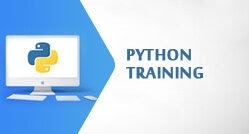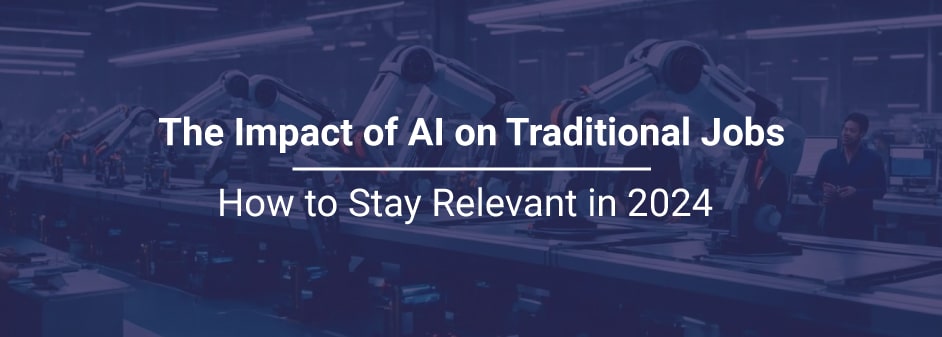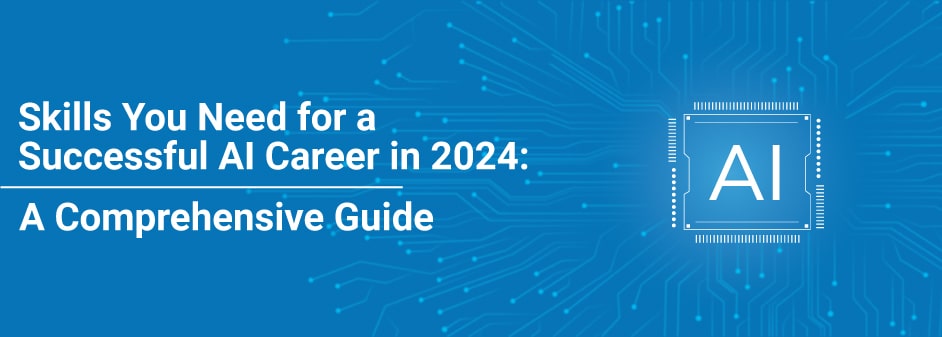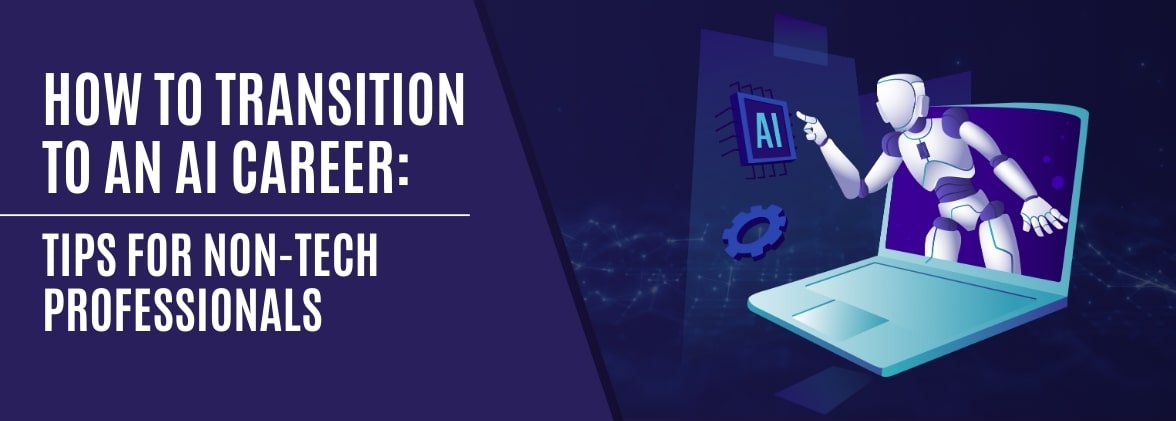How GenAI is Creating Jobs, Not Just Changing Them
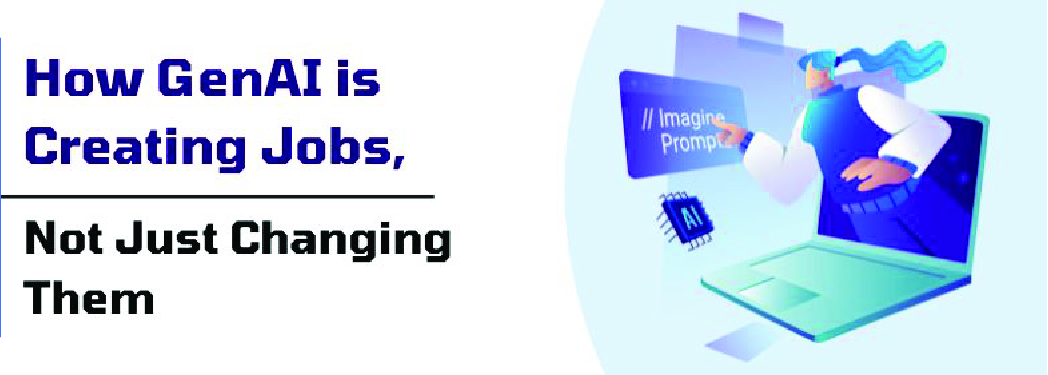
Generative Artificial Intelligence (GenAI) is often discussed in terms of the jobs it will disrupt or transform. However, it’s crucial to recognize that GenAI is also a powerful engine for job creation. From new roles in AI development to entirely new industries emerging from AI capabilities, GenAI is shaping the job market in ways that open up fresh opportunities for the workforce. This blog explores how GenAI is not just changing jobs but actively creating them.
Understanding Generative AI
Overview: Generative AI refers to algorithms, like those used in GPT-4, that can create new content such as text, images, music, and even code. These AI systems learn patterns and structures from large datasets and generate novel outputs that mimic the learned data.
Impact on Job Creation: Generative AI’s ability to produce creative and complex outputs is driving demand for new roles that manage, refine, and leverage these capabilities.
New Job Roles in AI Development
AI Research and Development:
- AI Researchers: Professionals dedicated to advancing the capabilities of generative AI systems through innovative research and development.
- Machine Learning Engineers: Specialists who design, build, and maintain AI models, ensuring they are effective and efficient.
AI Ethics and Governance:
- Ethical AI Specialists: Experts who ensure AI systems are developed and used responsibly, addressing issues like bias, fairness, and transparency.
- AI Policy Advisors: Professionals who work with governments and organizations to develop policies and regulations for AI deployment.
AI Infrastructure and Support:
- AI Infrastructure Engineers: Individuals responsible for creating and maintaining the computational infrastructure that supports AI systems.
- AI Operations Managers: Professionals who oversee the deployment and maintenance of AI systems in real-world applications.
Transforming Industries and Creating Jobs
Healthcare:
- AI in Diagnostics: Roles for specialists who develop and maintain AI systems that assist in diagnosing diseases from medical images and data.
- Telehealth Coordinators: Professionals who integrate AI into telehealth services, enhancing patient care and accessibility.
Finance:
- AI Financial Analysts: Analysts who use generative AI to predict market trends and develop investment strategies.
- Fraud Detection Specialists: Experts who leverage AI to identify and prevent fraudulent activities.
Entertainment and Media:
- Content Creators: New opportunities for creators who use AI tools to generate music, art, and written content.
- AI Narrative Designers: Professionals who use AI to develop interactive and dynamic storytelling experiences in gaming and media.
Emerging Industries and Startups
AI-Driven Startups:
- AI-Powered Products: Entrepreneurs are creating new businesses centered around AI-powered products, such as personalized content generators or AI-based design tools.
- Tech Incubators: New incubators and accelerators focused on nurturing AI startups, creating jobs for mentors, advisors, and operational staff.
AI in Education:
- AI Educators: Roles for teachers and trainers who specialize in educating the next generation of AI professionals.
- EdTech Developers: Professionals developing AI-driven educational technologies that offer personalized learning experiences.
Enhancing Productivity and Creating Value
Business Operations:
- AI Integration Consultants: Specialists who help businesses integrate AI tools into their operations to enhance productivity and efficiency.
- Process Automation Experts: Professionals who design and implement AI-driven automation solutions, creating value and reducing operational costs.
Customer Experience:
- AI Customer Service Representatives: Roles for managing AI-driven customer service tools and ensuring they meet customer needs effectively.
- User Experience Designers: Experts who optimize the interaction between AI systems and users to ensure seamless and intuitive experiences.
Upskilling and Reskilling the Workforce
Training Programs:
- AI Bootcamps: Intensive training programs that equip professionals with the skills needed to work with generative AI technologies.
- Corporate Training: Companies are investing in upskilling their employees to work alongside AI, creating new training and development roles.
Educational Institutions:
- Curriculum Developers: Professionals who design AI-focused curricula for universities and training centers.
- AI Instructors: Educators who teach courses on AI and its applications, preparing students for careers in this burgeoning field.
Conclusion
Generative AI is a transformative force in the job market, creating a plethora of new roles and opportunities across various industries. As businesses and society continue to harness the power of AI, the focus should not only be on how jobs are changing but also on the new jobs being created. By embracing these opportunities and investing in the necessary skills and training, individuals and organizations can thrive in the evolving landscape shaped by generative AI.
FAQs
What is Generative AI?
Generative AI refers to algorithms that can create new content such as text, images, and music by learning patterns from large datasets and generating novel outputs.
How is Generative AI creating new jobs?
Generative AI is creating new jobs in AI development, ethical AI governance, AI infrastructure, and support, as well as transforming roles in industries like healthcare, finance, and entertainment.
What are some emerging roles in AI development?
Emerging roles include AI researchers, machine learning engineers, ethical AI specialists, AI policy advisors, and AI infrastructure engineers.
How can businesses leverage Generative AI for growth?
Businesses can leverage generative AI by integrating AI tools to enhance productivity, automating processes, and creating innovative AI-driven products and services.
How can individuals prepare for careers in AI?
Individuals can prepare by pursuing education in AI, participating in AI bootcamps and training programs, and gaining experience through projects and internships in the AI field.
Generative Artificial Intelligence (GenAI) is often discussed in terms of the jobs it will disrupt or transform. However, it’s crucial to recognize that GenAI is also a powerful engine for job creation. From new roles in AI development to entirely new industries emerging from AI capabilities, GenAI is shaping the job market in ways that open up fresh opportunities for the workforce. This blog explores how GenAI is not just changing jobs but actively creating them.
Understanding Generative AI
Overview: Generative AI refers to algorithms, like those used in GPT-4, that can create new content such as text, images, music, and even code. These AI systems learn patterns and structures from large datasets and generate novel outputs that mimic the learned data.
Impact on Job Creation: Generative AI’s ability to produce creative and complex outputs is driving demand for new roles that manage, refine, and leverage these capabilities.
New Job Roles in AI Development
AI Research and Development:
- AI Researchers: Professionals dedicated to advancing the capabilities of generative AI systems through innovative research and development.
- Machine Learning Engineers: Specialists who design, build, and maintain AI models, ensuring they are effective and efficient.
AI Ethics and Governance:
- Ethical AI Specialists: Experts who ensure AI systems are developed and used responsibly, addressing issues like bias, fairness, and transparency.
- AI Policy Advisors: Professionals who work with governments and organizations to develop policies and regulations for AI deployment.
AI Infrastructure and Support:
- AI Infrastructure Engineers: Individuals responsible for creating and maintaining the computational infrastructure that supports AI systems.
- AI Operations Managers: Professionals who oversee the deployment and maintenance of AI systems in real-world applications.
Transforming Industries and Creating Jobs
Healthcare:
- AI in Diagnostics: Roles for specialists who develop and maintain AI systems that assist in diagnosing diseases from medical images and data.
- Telehealth Coordinators: Professionals who integrate AI into telehealth services, enhancing patient care and accessibility.
Finance:
- AI Financial Analysts: Analysts who use generative AI to predict market trends and develop investment strategies.
- Fraud Detection Specialists: Experts who leverage AI to identify and prevent fraudulent activities.
Entertainment and Media:
- Content Creators: New opportunities for creators who use AI tools to generate music, art, and written content.
- AI Narrative Designers: Professionals who use AI to develop interactive and dynamic storytelling experiences in gaming and media.
Emerging Industries and Startups
AI-Driven Startups:
- AI-Powered Products: Entrepreneurs are creating new businesses centered around AI-powered products, such as personalized content generators or AI-based design tools.
- Tech Incubators: New incubators and accelerators focused on nurturing AI startups, creating jobs for mentors, advisors, and operational staff.
AI in Education:
- AI Educators: Roles for teachers and trainers who specialize in educating the next generation of AI professionals.
- EdTech Developers: Professionals developing AI-driven educational technologies that offer personalized learning experiences.
Enhancing Productivity and Creating Value
Business Operations:
- AI Integration Consultants: Specialists who help businesses integrate AI tools into their operations to enhance productivity and efficiency.
- Process Automation Experts: Professionals who design and implement AI-driven automation solutions, creating value and reducing operational costs.
Customer Experience:
- AI Customer Service Representatives: Roles for managing AI-driven customer service tools and ensuring they meet customer needs effectively.
- User Experience Designers: Experts who optimize the interaction between AI systems and users to ensure seamless and intuitive experiences.
Upskilling and Reskilling the Workforce
Training Programs:
- AI Bootcamps: Intensive training programs that equip professionals with the skills needed to work with generative AI technologies.
- Corporate Training: Companies are investing in upskilling their employees to work alongside AI, creating new training and development roles.
Educational Institutions:
- Curriculum Developers: Professionals who design AI-focused curricula for universities and training centers.
- AI Instructors: Educators who teach courses on AI and its applications, preparing students for careers in this burgeoning field.
Conclusion
Generative AI is a transformative force in the job market, creating a plethora of new roles and opportunities across various industries. As businesses and society continue to harness the power of AI, the focus should not only be on how jobs are changing but also on the new jobs being created. By embracing these opportunities and investing in the necessary skills and training, individuals and organizations can thrive in the evolving landscape shaped by generative AI.
FAQs
What is Generative AI?
Generative AI refers to algorithms that can create new content such as text, images, and music by learning patterns from large datasets and generating novel outputs.
How is Generative AI creating new jobs?
Generative AI is creating new jobs in AI development, ethical AI governance, AI infrastructure, and support, as well as transforming roles in industries like healthcare, finance, and entertainment.
What are some emerging roles in AI development?
Emerging roles include AI researchers, machine learning engineers, ethical AI specialists, AI policy advisors, and AI infrastructure engineers.
How can businesses leverage Generative AI for growth?
Businesses can leverage generative AI by integrating AI tools to enhance productivity, automating processes, and creating innovative AI-driven products and services.
How can individuals prepare for careers in AI?
Individuals can prepare by pursuing education in AI, participating in AI bootcamps and training programs, and gaining experience through projects and internships in the AI field.

